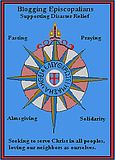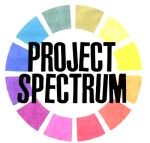like sheep without a shepherd
Don,After complaining that it might take us to Chapter 10 of MacCulloch's Reformation to get us to Luther, I was pleasantly surprised to reach the middle of Chapter 3 and discover Martin himself. MacCulloch's speed has slowed considerably and we're now into territory familiar from coursework, so I'm feeling less of a spinning head, and able to make progress faster. I do appreciate the fact that he has a wider scope than the other histories I've read (for instance, I'm currently in Ch. 4, and he is discussing Reformation issues in Poland and Lithuania, all new to me).
I've been thinking about how fast the spread of evangelical ideas spread beyond Luther's control, and were shaped by forces that had very little to do with theology, and everything to do with the need for power or control by monarchs, clergy, merchants, city councils. . .
What an exciting and yet frightening time it must have been. No wonder there was so much talk of the Second Coming and the Last Days. People were suddenly willing to question many things that had been assumed.
I think some of Americans' current discussion of a Christian nation comes out of this Protestant history, and the idea that a leader's religion was the religion of the country, and the idea of Covenant (was that Zwingli? I'll have to go back and check) between God and country. I was also interested to see that the idea of Utopia takes root in this period as well, again, another influential thought in the U.S.
Must get to sermon. Oh, and husband's installation as Rector is 9/15. More importantly, from my perspective, my in-laws will be here. So progress must continue on the organization of apartment.
It must be interesting to think of your visits to Durham and Lindisfarne in light of what we are reading now.
Emily

























1 Comments:
Nice post. As you know, fundamnetalism in America grew out of many of the same motivations. They feared losing control and wanted to "return" to many of the Puritan ideals. I am reminded of the "blue laws" in some southern states and how the "early" Puritans attempted many of the same things. Just their undertanding of catholicism-- anything Catholic must be bad!
Nice to have found you!
Post a Comment
<< Home